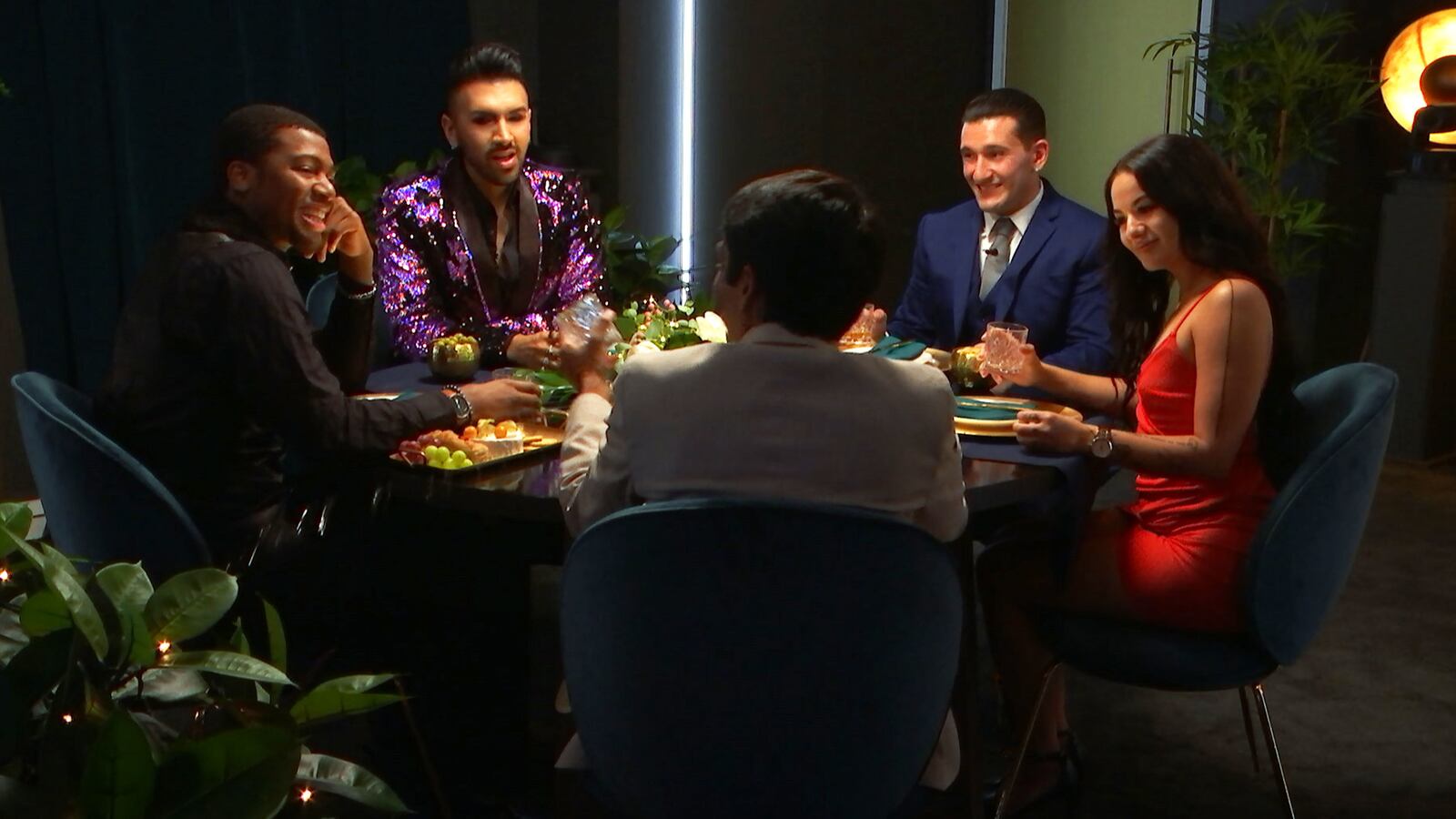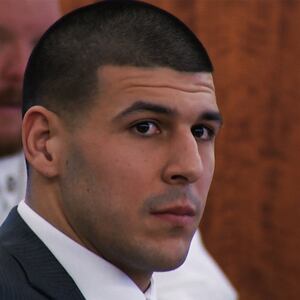It may only be two weeks into the year, but we have already received a glimpse into a dystopian new decade of normalizing catfishing and online clout-chasing. I’m talking about the Netflix game show The Circle, which set Twitter abuzz when the first four episodes dropped on Jan. 1. The final installments premiered on Wednesday.
Its premise is peak 2020: eight contestants live in isolated single apartments in what appears to be the same building, but they are forbidden from physical contact with one another, instead communicating exclusively through a “voice-activated” social media platform called The Circle. They are competing to become the most “popular” with other contestants and after a full day of stalking each other’s photos and bios, chatting via instant message, and playing games, they rank their competitors from favorite to least favorite. The two most popular players each week become “influencers” (blue verification check and all) and get to “block,” or eliminate, a contestant of their choosing. The contestant who ranks first at the end wins $100,000.
Each episode is comprised entirely of twenty- and thirtysomethings spending the whole day alone, looking at a screen, talking to themselves. Yet it’s highly addictive just minutes into the first episode. According to both Twitter and my personal experience, the show is mainly consumed in lengthy binges, and it’s not long before reality starts to mimic art (or, well, augmented reality). After six hours glued to your couch, staring at your TV watching 24-year-old bisexual Sammie stare at her TV, it’s impossible not to feel like you’re living an episode of Black Mirror.
Then there is the catfishing of it all. Not only is catfishing condoned on The Circle, but it is almost encouraged with the tagline delivered by narrator Michelle Buteau, “How far would you go to be popular on social media if there were $100,000 at stake?” The implication? There is no such thing as too far. In pursuit of “influencer” status and a cash prize, several of the contestants choose to fully catfish as a different person—like Karyn, a 37-year-old plus-size lesbian from the Bronx posing as svelte Insta-baddie Mercedeze.
Others lie only about some aspects of themselves, as in the case of 24-year-old professional basketball player Antonio who presents as single to appeal to women on The Circle even though he has a girlfriend at home. The remaining handful decide to commit to being themselves, although even the ones “being themselves” deserve to be taken with the grain of salt reality television necessitates.
Perhaps the most disarming aspect of The Circle, though, is how likable every single one of the contestants is. Fellow veteran reality-TV viewers know that this is rarely the case. It’s all the more shocking in the context of the show’s superficial premise of chasing both online popularity and huge sums of money. Maybe it is the element of transparency—on any reality show, the contestants are usually singularly motivated by those same two things, but must pretend they are, to use the proper reality-TV jargon, “there for the right reasons,” like falling in love.
It seems inevitable that we will be annoyed by the attractive 25-year-olds strategizing about how to achieve social media popularity and laboring over choosing the profile picture that makes them look hot, but not intimidatingly sexy. In fact, we want to be annoyed by them and their blatant, unabashed shallowness.
But even the unlikeliest competitors get to show off their good side, or at least their undeniably human and sympathetic side. Joey, a DJ Pauly D prototype from Rochester who compares himself to a young De Niro (“Bobby D!”) and takes off his shirt to flirt with girls over text, develops an unexpectedly sweet bond with dorky virtual-reality engineer Shubham, who he calls “Shooby.” The blonde beauty from Texas, who starts her bio with the eyeroll-inducing line, “tacos all day, every day” and ends it with, “I’m a full-time model,” won me over when she called out everyone else for being fake in a game where she was one of the only ones who admitted to being seduced by money. “You’re all lying because you are here,” she yells exasperatedly at her TV, “and at the end of this game, you will be winning a cash prize.”
Essentially, The Circle is a thought-provoking social experiment disguised as trashy reality TV. The results are alternately hilarious, disturbing, heartwarming, and revelatory. The first ranking session is a hard pill to swallow, with contestants harshly judging each other based only on one picture and short bio before getting to talk to each other at all. It is clearly intended to make viewers think about the similar ways they judge people on social media, and at that point, I wasn’t sure I would be able to make it through such a cynical show. But sticking it out proved worthwhile.
A conversation between Karyn/Mercedeze after she reveals her true identity to Antonio captures The Circle’s capacity to uplift and inspire. When he asks her why she chose to present as Mercedeze, she replies candidly, “Would you have talked to me if I looked like this on my default?” She adds, choking up, “I did the catfish because, um, all my life I’ve been judged. I’m not ugly, but I’m not feminine. So it’s really the fact of just showing the world that you can’t judge a book by its cover.”


